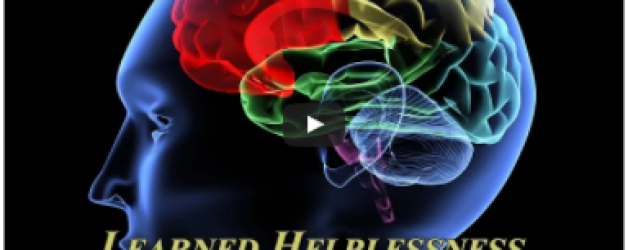What is “Learned Helplessness”?
When people feel that they have no control over their situation, they may begin to behave in a helpless manner. This inaction can lead people to overlook opportunities for relief or change.
Consider a child who performs poorly on math tests and assignments will quickly begin to feel that nothing he or she does will have any effect on math performance. When later faced with any type of math-related task, he or she may experience a sense of helplessness. Some call this a fixed mindset. [Source]
Here’s a little history of the “Learned Helplessness” Theory
There are also situations where you may induce “learned helplessness” in school or personal relationships. This is an activity that a teacher did with learners after discussions on relationships.
Now let’s take this idea of “learned helplessness” and what this means about learners being compliant. Think about your high school kids who just want a grade. Have you heard them ask “what are the points?” “what do I have to do to get an A?”
It’s about that intrinsic motivation to want to learn. We’ve embedded this behavior as part of the system starting even in pre-school now. The responsibility for learning is all on the teacher who is now held accountable for what kids learn. Teachers, too, can have this “learned helplessness” feeling about what they do in the class. I’ve heard teachers say “but I have to teach to the test” or “I have to cover the curriculum.”
We need our kids to be able to think on their own, drive their learning, and be the ones responsible for what and how they learn. It is about the idea of encouraging learners of all ages to believe they can do things — that they don’t need others to do something for them if they are capable. It is about changing mindset but that’s for another post.
We can change our thinking, model growth mindset and what it means to believe in ourselves. What do you think?
*****
Interested in checking out more of the Rethinking Learning podcasts and reflections, click on the podcast tab at the top, the logo below, or go to https://barbarabray.net/podcasts/
For more information about Barbara’s book, Define Your WHY, go to this page or click on the image of the book for resources, questions, and links.






[…] Instrumental is a similar system in education as the factory model that encourages rewards and consequences instead of self-discovery. Most of us are used to this system that we became comfortable with it and find it difficult to change. “Students” especially high school students may ask questions like “what is my grade?” or “is this going to be on the test?” Some “students” know how to “do” school to get through school. Others just want to follow the rules where others are not motivated because they lost interest, do not feel successful, are bored with school or feel no connections to the teacher, school or learning. I’ve even heard this: “just tell me what to do to learn.” I call this “learned helplessness.” […]
[…] in a makerspace. Yet at this level, students tend to be more compliant and present a sense of learned helplessness. Students may be more interested in what their grades will be or if what they are learning will be […]